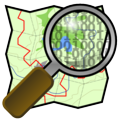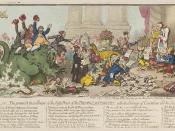David Freeman Hawke, in his book Everyday Life in Early America opens with this statement, "To hear the seventeenth century tell I, only the dregs came this way- 'unruly gallants packed thither by their friends to escape ill destinies... condemned wretches, forfeited by law..." It is clear by Hawke's words, and also by what he presents throughout Everyday Life in Early America that while the early settlers may have tried to lay a good foundation for a new nation, they failed at this. So it can be seen that actually, early settlers laid not a good foundation for a good society, but rather a dysfunctional foundation for a dysfunctional society.
The idea of a dysfunctional society shall be addressed in 2 philosophical terms as well as one more concrete term. First, it will be shown that early settlers were dysfunctional in their conduct of peace and war, then it will be shown that early settlers were dysfunctional is their responsibilities to Justice, and Morality.
Using David Hawke's book as a main reference and several other key references, one will be able to see that by overall preponderance of evidence, early American settlers laid a foundation for a dysfunctional society is many different ways.
First, is the issue of the evidence which points to the rather concrete idea of whether early settler's conducting of war and peace were dysfunctional or not. Hawke brings up on page 131, that "Indians met the first contingent to Virginia with the zing of arrows, and their harassment, which twice almost wiped out the colony, continued for a quarter of a century." This is mind, we also see Hawke bring up, this time on page 132 that "The early Chesapeake settlers dared neither fish nor hunt except in armed groups.". From these two statements, we can...


